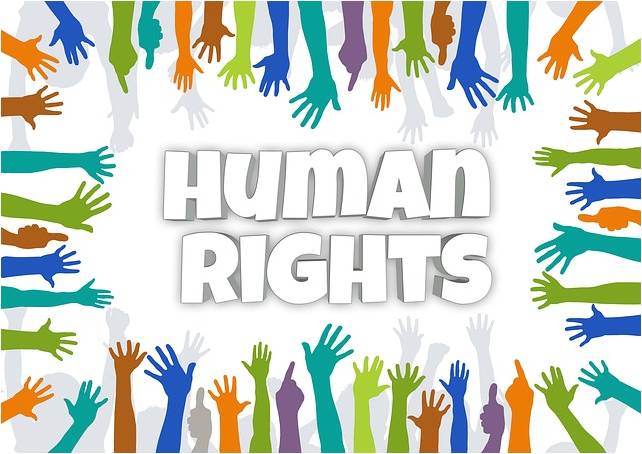Back to: CIVIC EDUCATION SS2
Welcome to Class !!
We are eager to have you join us !!
In today’s Civic Education class, We will be learning about Human Rights. We hope you enjoy the class!

Human rights are the inalienable rights and privileges enjoyed by the citizens of a state as codified in the constitution. Such rights include right to life, right to dignity of the human person, right to personal liberty, right to freedom of expression and the press, right to freedom of movement, right to a fair hearing, right to freedom of thought, conscience and religion, right to vote and be voted for, right to private and family life, etc.
EVALUATION
- Define human right.
- Mention six examples of human rights
LIMITATION OF HUMAN RIGHTS
Human rights can be restricted for the overall good of the citizens and the country at large in the following ways:
- A citizen may be denied some of his rights if he is detained by a court of law.
- A citizen’s right to life may be denied if he is condemned to death by the law court as a result of murder, armed robbery, etc.
- Right to life is also restricted by the law which forbids a citizen from killing himself or herself.
- Right to fair hearing cannot be exercised beyond the highest court which is the Supreme Court in Nigeria.
- Right to private property may be restricted by the right of the state to compulsorily acquire private property for public use.
- Declaration of dusk to dawn curfew in periods of emergency or chaos may limit the right of a citizen such as freedom of movement.
- The police in enforcing law and order can ban public assembly and demonstrations which will deny a citizen his rights to freedom of association and assembly.
- A citizen suffering from insanity or contagious disease may be deprived of his rights to safeguard the rights of others.
- The court can also restrict the movement of a citizen if he/she has a serious case pending in court.
- Rights to freedom of expression and the press are restricted by the law that prevents individuals from saying or publishing statements that could damage the personality of others (laws of slander and libel).
- Some public office holders such as the president, governor, parliamentarians, ambassadors, judges cannot be sued while in office because they enjoy the protection of the law called ‘immunity clause’
- Existence of military rule or an unpopular dictatorial government can lead to restriction of citizens’ rights.
EVALUATION
- What do you understand by ‘immunity clause’?
- State five reasons for the limitations of human rights.
GENERAL EVALUATION
- What is the constitution?
- Differentiate between constitution and constitutionalism
- Explain five factors that can promote the rule of law in a state
- Explain five human rights
- List four major challenges of democracy in Nigeria
READING ASSIGNMENT
Human Right: Fundamentals of Civic Education for Senior Secondary Book 2, Sola Akinyemi, Pages 41-45
SECTION B
- Explain three reasons for the limitation of human rights.
- Explain what you understand by the law of slander and libel.
We have come to the end of this class. We do hope you enjoyed the class?
Should you have any further question, feel free to ask in the comment section below and trust us to respond as soon as possible.
In our next class, we will be learning about Emergency. We are very much eager to meet you there.
